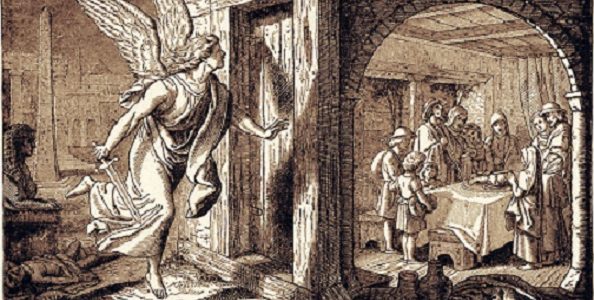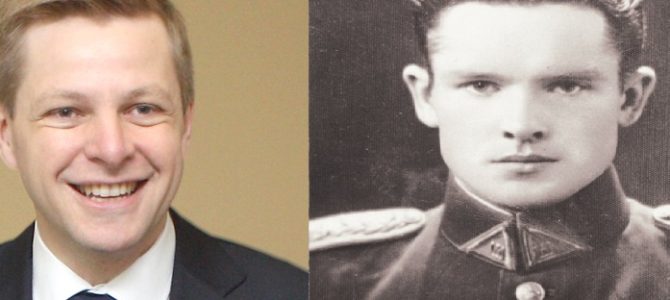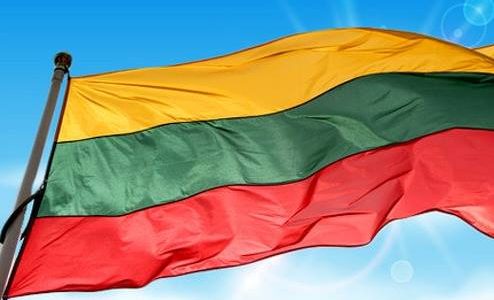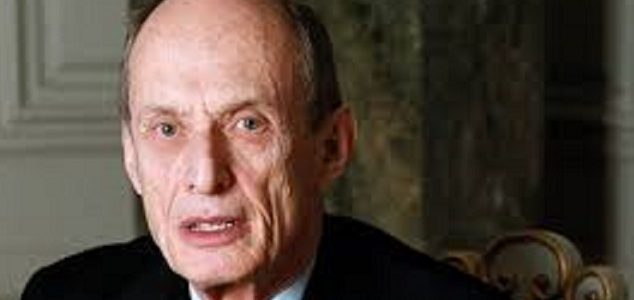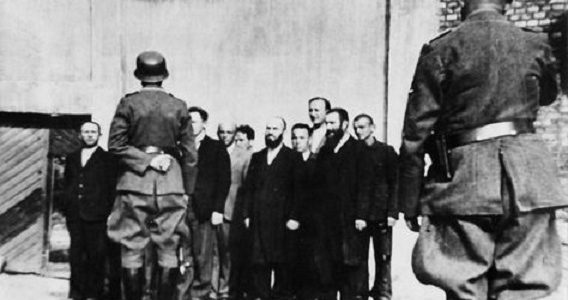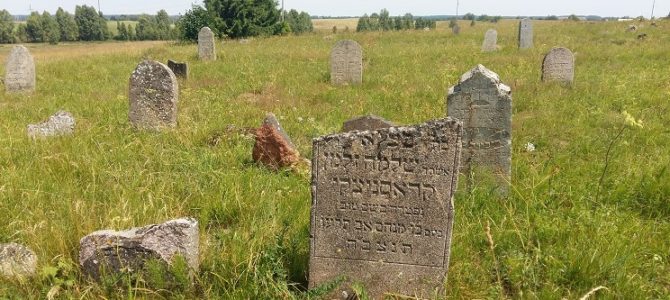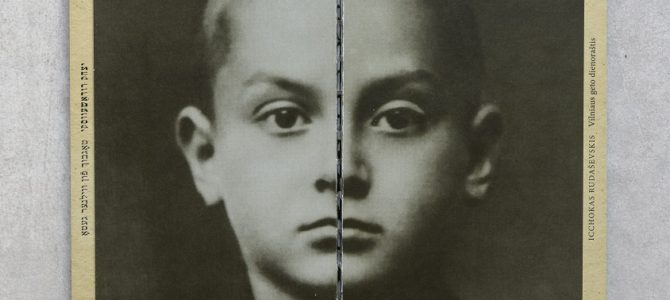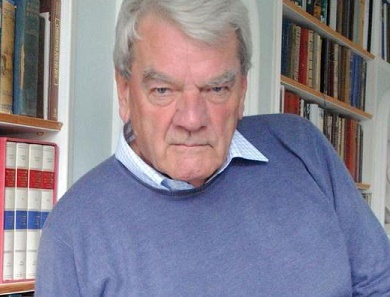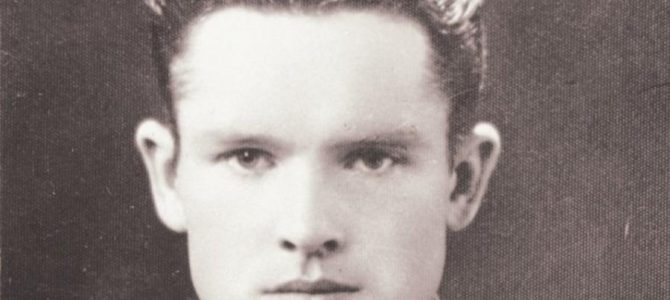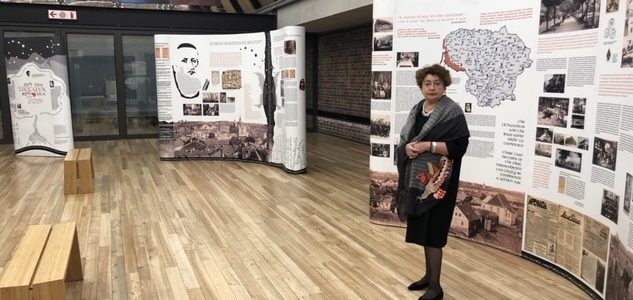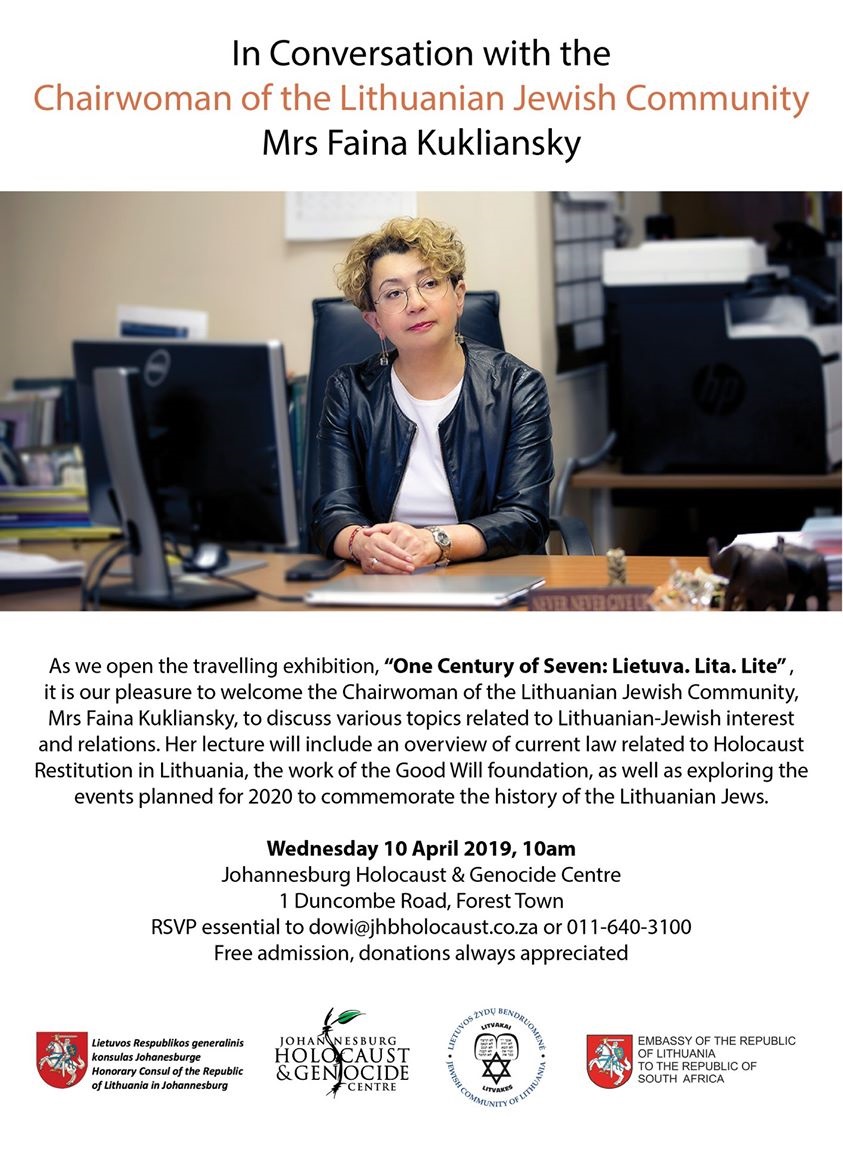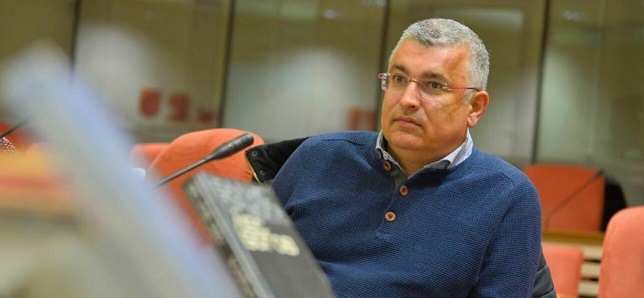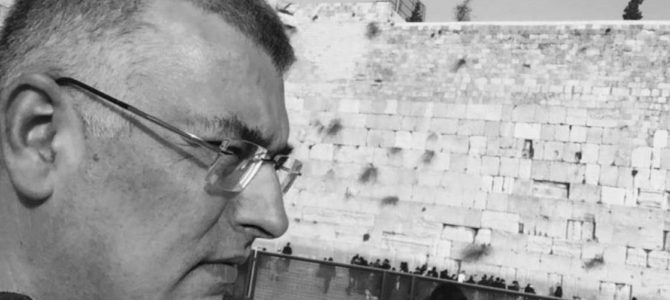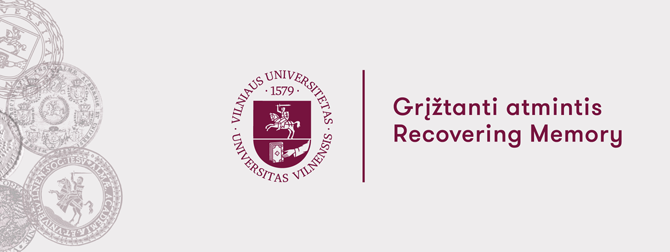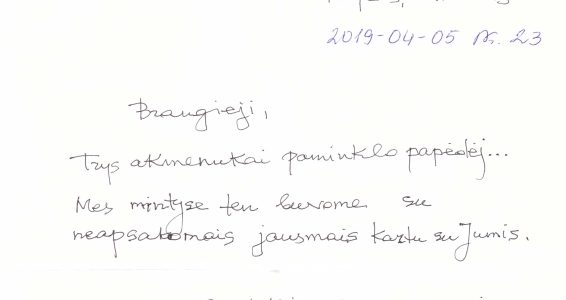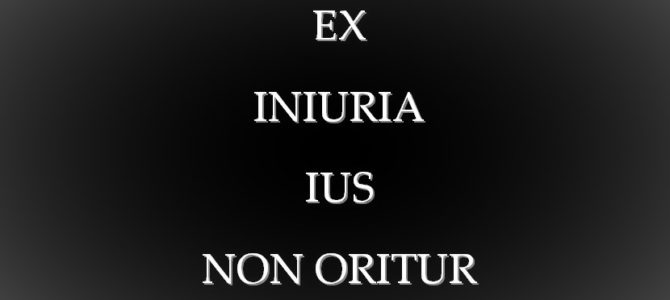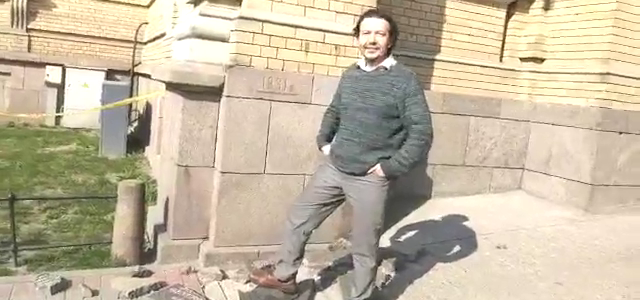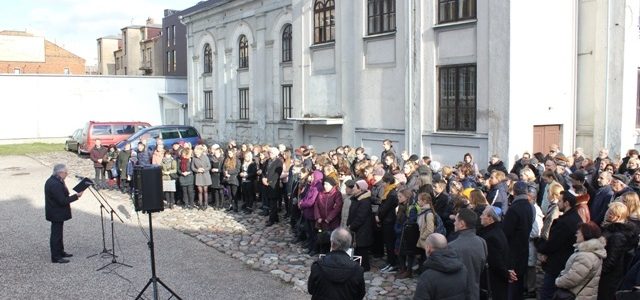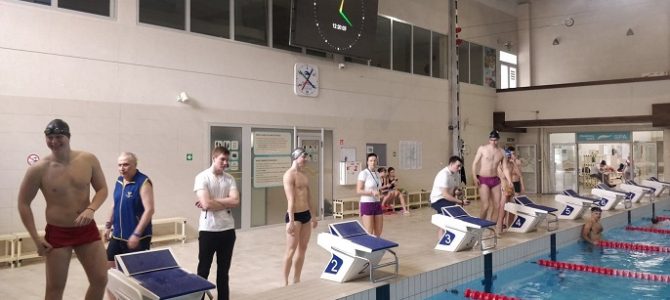The Lithuanian Jewish Community held its main Passover seder with the Vilnius Jewish Religious Community at the Old Town Hall in Vilnius. Around 40 tables with 10 places each were filled to capacity in the historic building’s main hall on the second storey and in a large side room. Jewish public figures including MP Emanuelis Zingeris and Sholem Aleichem Gymansium prinicipal Miša Jakobas, among others, attended. The Choral synagogue;s Rabbi Sholom Ber Krinski, Rebbetzin Nechama Dina Krinsky and one of their elder sons led the candle-lighting, haggadah and kiddush, and explained the special rules for when the first day of Passover falls on the Sabbath. The entire Jewish population in Lithuania is estimated at around 4,000 people, so this seder was attended by about 10% of the Jewish population of Lithuania. In earlier years competing Passover seders by competing rabbis in Vilnius tended to attract different groups of celebrants. The largest main seders by the LJC in living memory were not as large as this year’s.

Lithuanian Jewish Community Statement on Genocide Center’s Newest Report on Kazys Škirpa


















